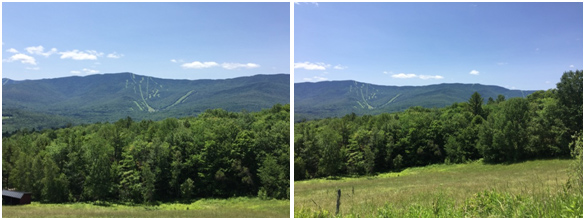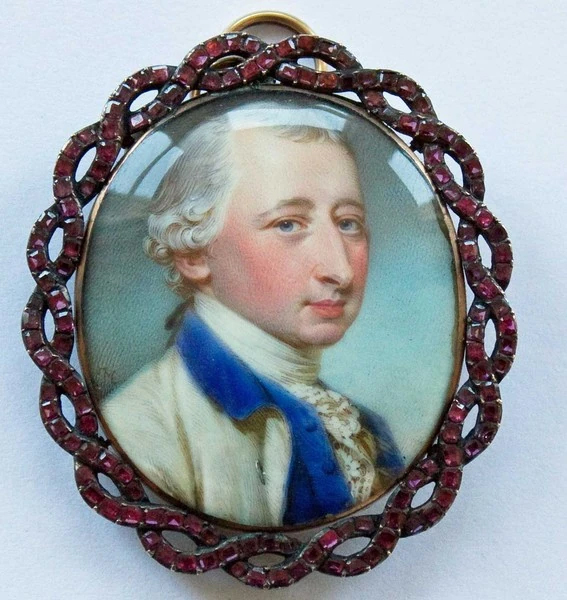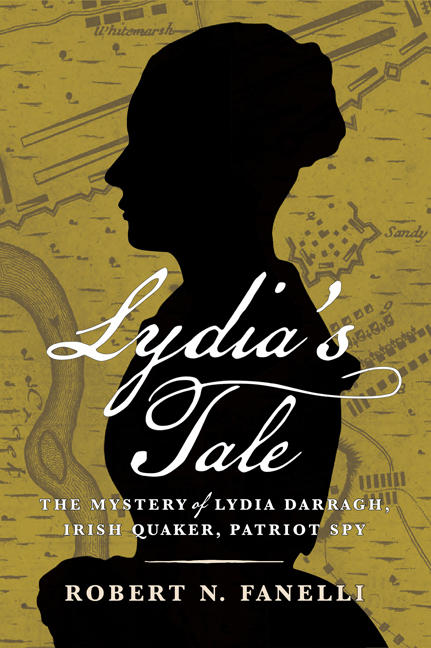About Gene Procknow
Gene Procknow is a frequent contributor to the Journal of the American Revolution and his article on loyalist American officers was selected for publication in the 2015 Annual Volume. His research concentrations include interpreting the Revolution from a non-American perspective, better understanding the Revolution’s global aspects and in Ethan Allen and the creation of Vermont. He is the author of the Mad River Gazetteer, which traces the naming of prominent Vermont place names to Revolutionary War patriots. Procknow authors a multidisciplinary writers blog on leadership development, poetry and additional articles on the Revolution and Vermont at geneprock.com. He is married with two historian sons and lives in Washington, DC.
What do people say about Gene?
Friends and colleagues describe me as an innovative thinking, tech savvy management consultant who analyzes and transforms business processes, people and organizations. The most unique feature of my business career is working for one consulting firm for thirty-eight years, my only full time employment since college graduation. My inquisitive bent and discerning interest in understanding people and their motivations has led to a life long interest in the study of history.
What inspired you to start researching and writing about the Revolution?
Outside the back porch of a Vermont family home in the Green Mountains are the summits of Lincoln Peak and Stark Mountain. After looking at these mountains for many years, I finally investigated the origin of their names. Quickly, I learned that Vermonters designated these peaks for Generals Benjamin Lincoln (no, not Abe Lincoln!) and John Stark, neither of whom lived in the state. After the war, the surrounding valleys were settled by many former Patriot soldiers who fondly remembered the exploits of these two generals who ably protected Vermont from British invasion in 1777.
This initial investigation expanded into an interest in Ethan Allen and Vermont’s role in the Revolution and eventually encompassed the entire Revolution.

Interesting, one has to travel into the wilderness several miles north of these mountains to find Mt. Ethan Allen and Mt. Ira Allen, two lesser, non-descript peaks. This says something about which revolutionary leaders were most venerated by contemporaries!
Why is the study of the American Revolution important in your life?
During the Revolution people made life-altering and often indelible choices – do I rebel or stay loyal and do I fight or remain on the sidelines? Life is about making choices and the study of how Patriots and Loyalists made their choices helps inform us on choices associated with contemporary issues. For example, understanding the motivations and backgrounds of revolutionary decision makers provides valuable lessons to “connect the dots” between self-interests, viewpoints and resulting actions. Further, even our most venerated founders had both strengths and important flaws, which illustrates the importance of looking deeper into the characters of today’s leaders and colleagues. Finally, history provides instructive reference points for challenging decision making, contributing to our personal and professional growth.
What aspects of the Revolution are most interesting to you?
Like many Revolutionary students, I started my study with a focus on the major campaigns and battles. However, the revolutionary conflict on the fringes and frontiers emerged as most interesting to me. The Revolution in boundary areas such as Vermont, western New York State and Native American country are rich in interesting, but lesser known revolutionary events. Importantly, conflict on the frontier shaped the resulting United States by including territories beyond the settled, seaboard portions of the thirteen colonies.
In addition, I find primary accounts written from non-Patriot points of view intriguing. The experiences of Native American, Canadian, African slaves, French, Spanish and others are vastly different than the memoirs written by the predominantly English rebels and provide a deeper understanding of events and people.
What historians or books have most influenced your work? Why?
I am most fascinated by memoirs written by Revolutionary participants and those of the next generation with access to the oral tradition. I enjoy interpreting these participant narratives including understanding their motivations, identifying puffery, discerning fact from fiction, and recognizing self-interested spin. A particularly good example is A Narrative of Colonel Ethan Allen’s Captivity, which is part autobiographical, part promotional and part propaganda. Other fascinating, well written first hand accounts are Capt. Johann Ewalds’s Diary of the American War and Henry Lee’s Memoirs. In addition, David Ramsay’s books on the Revolution, Washington, South Carolina and his memoirs are particularly noteworthy.
Typically, contemporary histories provide broader perspectives, include better facts (especially with on-line access to source materials), integrate multiple primary sources and contain fewer errors and misstatements. However, they lack the passion and emotion of the participants and first generation writers.
What are your go-to research resources?
I start with simple Google searches, which lead to informative web sites, on-line archives and relevant Google books. Often, I search The Papers of George Washington and the British Colonial Office Documents of the American Revolution. But, inevitably I consult Francis Heitman’s Historical Register of Officers of the Continental Army and Mark Boatner’s Encyclopedia of the American Revolution. If I could only have two reference books, these would be my selections.
Which of your own JAR articles is your favorite or most rewarding? Why?
One of the best aspects of the Journal of the American Revolution is sparking commentary from fellow readers. I particularly enjoyed writing How the British Won the American Revolution and interacting with the readers. It is interesting to consider revolutionary events on a global scale, from different points of view, and to challenge conventional, ethnocentric thinking.
Other than your own contributions, what are some of your favorite JAR articles?
Of course, I am biased towards writers with Vermont interests such as Mike Barbieri and Gary Shattuck. Mike has penned a rich series of articles on the Revolution in the Champlain Valley including his recent article on the fort at Mount Independence. Gary writes articles that incorporate his legal and law enforcement backgrounds that lend a unique view on revolutionary topics.
What new research/writing projects are you currently working on?
I am analyzing the Revolutionary contributions of Gen. Israel Putnam of Connecticut. An enigma, he emerged from the French and Indian War with the reputation as a fierce warrior, started the Revolution as the fourth most senior general to Washington, but ended the conflict with a checkered reputation. There are hints that he was too “cozy” with Tories, lacked battlefield command presence and may have personally regretted the final break with Britain. However, after the war Connecticut compatriots honored him with several place names and memorials. Further, Washington lavished praise on Putnam, although the two had command disputes and Putnam may have been intentionally insubordinate. This rich set of dichotomies provides interesting research avenues.
Why is Journal of the American Revolution important to you?
JAR is a unique way to expand ones understanding of the Revolution and to connect with very knowledgeable experts and exchange ideas. The articles are high quality, approachable and supported with copious primary sources. JAR’s readers are extremely well informed and their comments are particularly interesting. Reading the daily articles and associated comments helps me become a better researcher and writer.
Is there an article, or subject area, that you would like to see appear in JAR?
There is an opportunity for more historiography articles on how the views of historians have changed over time (like the recent JAR article by John L. Smith on Daniel Boone). Interesting topics including the changing views on the cooperation of the French and Patriot military commands during the war (probably less close than you think), supply deprivations of the British/Loyalist forces (all the focus is on the Patriots in their winter encampments) and potential winning strategies for the British, especially after the entry of the French and the resulting need to protect the West Indies. Comparing and contrasting interpretations on these and other subjects creates more understanding and helps researchers better practice their profession. And any interpretive controversy will expand our knowledge of the events and participants.
What other hobbies/interests do you enjoy?
I enjoy a broad range of writing and blogging. As a professional management consultant and member of two boards of directors, I regularly publish articles on a variety of leadership and governance issues on LinkedIn. These articles can be accessed here. I also author a writer’s blog entitled The Human Spirit, Nature and the American Revolution, which can be accessed at www.geneprock.com. Lately, I have even experimented with penning some poetry on this web site.
When not writing, I spend as much time as possible outside practicing a wide range of outdoor sports including running, all forms of snow skiing, and hiking. Two recent adventures include bushwhacking off-trail a fifty-mile traverse of Glacier National Park in Montana and an eight-day backcountry ski mountaineering ascent of the Ortler Range in the Italian Alps.
For an update on my interests and activities, follow me on Twitter at @GeneProck.








2 Comments
Gene, I enjoyed your interview very much. As a Vermont-centered RevWar person, I had wondered how often you’d been asked about (Abraham) Lincoln Peak; and you touched on it… with an exclamation mark, so you answered that!
Just a note that I’ve always considered your article “How the British Won the American Revolution” to be one of the best macro level summaries of the British outcome to the war that I’ve ever read. I still refer to it from time to time. Thank you!
John, I appreciate your comment and reflections on “How the British won the American Revolution”, especially from your extensive background. Thank you!
Looking at Revolutionary events from different vantage points and historical perspectives interests me. It reminds me of the conflict’s complexity (especially in Vermont) and not a single outcome for all.